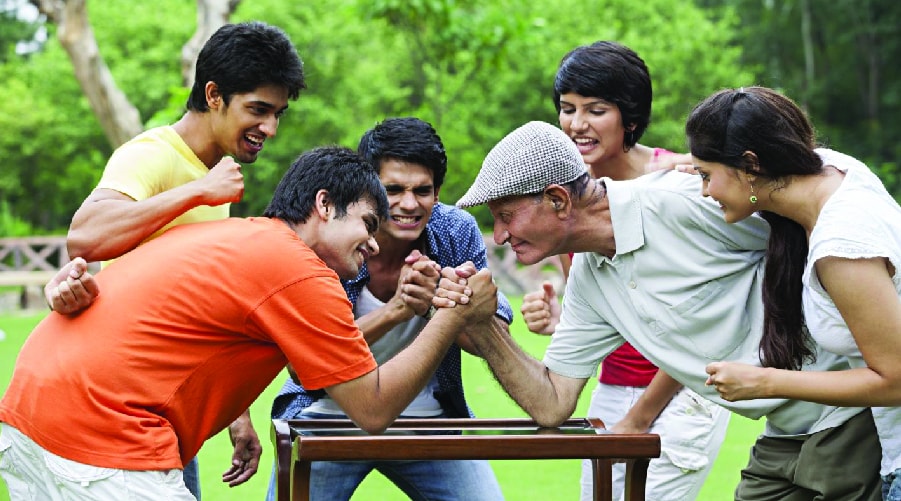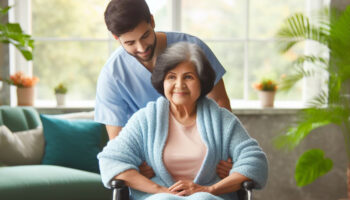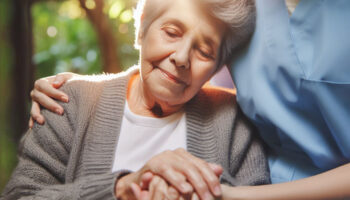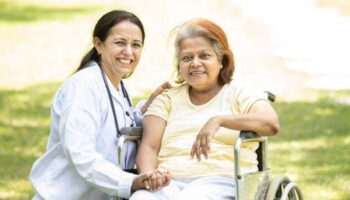Do you know which is the greatest joy? It is the joy of giving. “Giving” here does not imply charity but the giving of love, help and support. And elders are the people who both give and receive love the most.
Have you watched elders in senior living communities? Look at the 80+ man who is tottering by himself. Yet when he lends a hand to his infirm friend to get up from his chair, watch the glow of life light up his eyes! It is this inner happiness of helping that keeps elders going strong in their autumn years.
It is this tendency of helping others that form the basis of volunteering. Healthy elders in senior independent living homes are motivated to become volunteers in order to give them a sense of purpose and fulfillment in life.
Why should elders be motivated to be volunteers in senior homes?
Elders who are physically fit can be motivated to become volunteers in senior homes as it helps them
- To be happy
The “Happiness Trifecta” is a group of hormones that keep everyone, especially the elders going. This group of 3 hormones- Serotonin, Dopamine and Oxytocin- works wonders for the elderly. Serotonin induces sleep, Dopamine keeps you motivated, and Oxytocin increases bonding.
Elders who volunteer at assisted living facilities experience a gush of these 3 happiness hormones. Volunteering is an act of love and bonding which induces oxytocin release. This act of helping gives them a motivation for bringing on dopamine secretion. Finally, a sense of satisfaction pervades inducing serotonin and sleep. In short, elders who volunteer in assisted living facilities are the happiest.
- To be healthy
Elders who volunteer in senior homes are often the busiest. They need to move around, stretch their limbs, be alert and use all their mental and physical faculties. In short, volunteering involves physical exercise which elders do without even realizing it. Volunteering seniors remain physically fit and healthy without medicines.
- To drive away age-related diseases
Old age brings on a bout of diseases like diabetes, hypertension, cholesterol etc. All of these can be drastically reduced by shedding at least 5-7 kilos of body weight. All the moving around that the elder does while volunteering helps them lose weight unknowingly and thereby keeps diseases at bay.
- To keep their mind alert
When elders volunteer, their dopamine levels shoot up as they are motivated. A strong surge of dopamine is enough to keep the senior mentally alert and agile, driving old-age diseases like Parkinson’s and Alzheimer’s away.
- To be socially connected
Old age brings on loneliness and isolation. Participating in volunteering activities helps elders to shed their inhibitions and interact with their peers, thus driving away depression and isolation. Volunteers in senior homes mingle with a lot of people, exchange experiences and remain socially connected and convivial.
- To live longer
A research by the University of Michigan scholars reveals that elders who spent 40 hours a year volunteering had 40 % more chances of living longer.
- To connect with the community
Elderly volunteers in senior homes act as the liaison between the elders and the outside community. They help the staff and visitors to interact with the elders and form a bridge for their communication. Residents at assisted living facilities can relate to the volunteer residents with their problems more easily. Geriatric problems like dementia and Alzheimer’s are better understand by volunteer residents who serve such patients and they effectively communicate this to the outside world.
Volunteering is thus vital for good health and longevity in elders in senior homes. An understanding assisted living facility realizes the value of volunteering in making the elders’ lives more meaningful and puts it to best use.





